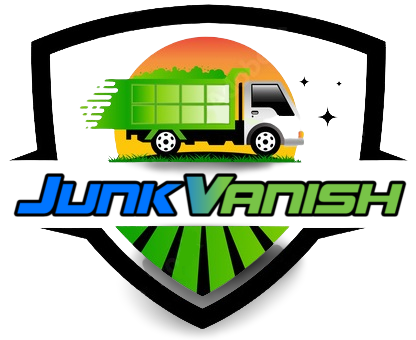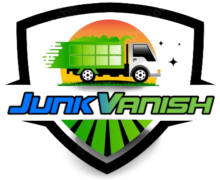[ad_1]
Recycling is a big deal. During the pandemic, it also became a big issue. Landfills and recycling centers were overloaded, sick, and couldn’t keep up with the decluttering, online ordering, and work-from-home changes that had residential bins and wheeled containers overflowing.
As things returned to the new normal, new challenges appeared. People didn’t want to keep risking their sanity and safety for jobs that didn’t always pay a liveable wage. Finding new employees was just as hard as getting former workers to return. Many recycling centers stopped accepting certain recyclables and others shut down or consolidated.
Bottle recycling declined by 1.6% between 2019 and 2020. There was a 5% decrease overall in plastics recycling, which resulted in 85% of generated plastic waste going to landfills. Paper and cardboard recycling rates were the best at 68% and 91.4%, respectively. Only 33% of glass was recycled. It’s not great news.
Meanwhile, the importance of recycling has never been greater. Despite changes to the laws, Vermont’s only landfill reports having space for only 20 more years of waste and there are no candidate landfills. Have you seen the movie “Idiocracy?” It’s startling how accurate some of that movie is. Something needs to change.
In 2022, there were two bills introduced in Congress. The Recycling and Infrastructure Accessibility Act was designed to improve access to effective recycling programs across the nation, but the last movement on that bill was to have Senator Carper file a written report.
The other bill, the Recycling and Composting Accountability Act, is meant to establish a national composting plan. It also is stagnant after Senator Carper files a written report.
House Report 117-140 did bring up the government’s concerns with pyrolysis and gasification, two forms of chemical recycling for plastics. Concerns are that these methods may impact the environment and the Clean Air Act.
How About Individual States?
Several states have taken measures to protect the environment. Do you live in one of these?
California:
California’s ban on PFAs in food packaging and take-out boxes started on January 1st. Another change gives manufacturers a year to prepare. Companies that make cookware must declare on the packaging if the coatings they use contain PFAs, or if they are PFOA-free.
Last year’s recycled content in plastic drink bottles went into effect on January 1st. Companies that are not using the required 15% recycled content in their plastic beverage bottles now face fines.
Colorado:
Like other states, Colorado established an “Extended Producer Responsibility” (EPR) requirement to improve recycling. The measure shifts the cost of recycling from municipalities and taxpayers to the manufacturers.
This EPR plan does what other states haven’t done, however. Manufacturers not only have to pay for recycling programs, but they also must pay for promotional and educational efforts, as well as the capital and operating funds needed to start programs.
Iowa:
Starting January 1st, redemption centers and dealers receive three cents per recycled container. Dealer agents continue to get a penny per bottle or can. Redemption centers must apply for a business permit by January 31st. Distributors must pick up the collected cans and bottles from a permit holder.
New Jersey:
Governor Phil Murphy signed an elaborate recycled content bill that bans polystyrene packing peanuts. It also requires many products, including paper, glass, and many plastics to contain recycled materials.
Rigid plastic must contain at least 10% post-consumer recycled content starting in 2024. Plastic drink containers must contain at least 15%. It increases to 50% by 2036 for rigid plastic and 2045 for beverage containers.
Glass also has post-consumer recycled materials requirements of 25% to 35%. Plastic carryout bags must contain 20% and increase to 40% in 2027. Paper bags must be between 20% and 40%. Plastic trash bags must also contain recycled plastic, starting with 5% to 20% in 2023 and increasing to 10 to 40% in 2027.
New York:
It’s been illegal to throw away electronics, but it was costly as manufacturers were able to pass the cost to others, and it always trickled down to consumers. Starting in 2023, it’s now the manufacturer’s responsibility. Consumers are now entitled to convenient and cost-free recycling.
Another change is carried over from the ban on plastic bags and paper bags costing 5 cents per. Effective January 18th, Walmart stores in New York all decided to stop selling paper bags. If consumers shop at Walmart, they must bring their own bags.
Oregon:
Oregon’s pilot program to end contamination in waste and recycling is expected to get started. The new EPR rules are set to place responsibility for the cost of recycling on the producers’ shoulders. The state is also working on setting rules that make recycling more accessible and equitable in multifamily buildings.
South Carolina:
On June 17, 2022, the governor of South Carolina signed Act 234. This bill enhanced the current laws regarding manufacturing companies having to take responsibility for the recovery and recycling of e-waste.
Starting in 2023, weight-based e-waste collection processes come to an end to make it easier for state residents to recycle older, heavier TVs and computer components. Manufacturers must work with communities to establish up to three collection sites per county or at least four community events per year.
Vermont:
Vermont as a whole hasn’t added anything new, but in the state’s largest city, changes are coming for its residents. Effective May 1st, Burlington residents and businesses must purchase and use a covered recycling wheeled container known as a toter.
The goal is to keep windblown recyclables out of the streets, storm drains, rivers, and Lake Champlain. The city is selling 35-gallon toters for $10, 65-gallon toters for $20, and 95-gallon for $25.
Washington:
Washington’s WRAP Act is also being considered. If it does pass, packaging that is one-time use and hard to recycle would become the producer’s responsibility to pay for the state’s recycling districts to collect and properly recycle. In addition, the WRAP Act will establish a bottle deposit program to ensure bottles get recycled properly.
Recycling Involves Your Cooperation
Recycling rates need to improve, and that means learning what you should be recycling in your district. If you find items you can’t recycle, check for other options before you throw them away. You might not be able to recycle plastic storage bags in your blue bin or wheeled recycling container, but you can recycle them at a participating plastic bags, film, and wrap location.
If you have other goods like foam egg cartons, pill bottles, or foam peanuts, check with local Freecycle groups to see if anyone can use them. You’d be surprised how helpful things like that are to someone with backyard chickens, daycares, or schools. Even an old, broken ladder is considered a treasure to someone into upcycling.
[ad_2]
Source link

